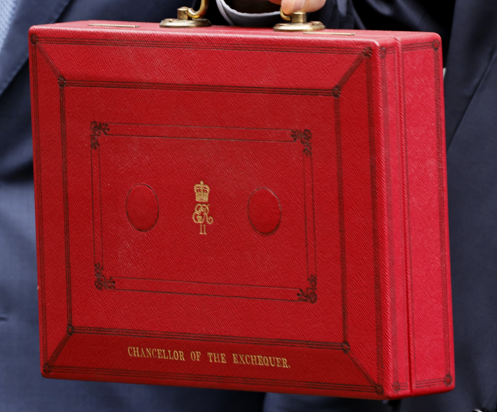Rises in employer national insurance are likely to hit staff wage increases, according to economic think tanks and employment sector leaders, following an Autumn Budget that will increase taxes by £40bn, with £25bn of it coming from employer NI.
The day after her Budget speech, chancellor Rachel Reeves admitted in a BBC interview that the rise in employer NI “is likely to mean that wage increases might be slightly less”.
The Office for Budget Responsibility (OBR) forecasts that 76 percent of the increase in employer NI will be passed onto employees via reduced pay rises and increased prices by 2026-27.
Paul Johnson, director of the IFS think tank, said: “Given the need to increase taxes substantially it was always obvious that income tax, NI contributions or VAT would have to increase, and indeed that is what has happened.
“The OBR suggests that three quarters of the impact of employer NI will be felt by employees, even if the changes don’t show up on payslips. Indeed, these tax rises partly explain why the OBR has downgraded its projections for real household income growth over the next few years. Somebody will pay for the higher taxes – largely working people. The employer NI rise will further increase the incentive for employers to switch to contracting with the self-employed.”
Risks of raising employer NI
The decision to raise so much money from employer NI comes with risks because “the tax rise falls heavily on low-earning jobs”, as well as further incentivising bogus self-employment, the Resolution Foundation said.
Analysts at the Foundation calculated that by cutting the earnings threshold at which employers start paying NI and increasing the NI rate to 15 percent, the chancellor has handed employers a tax rise equivalent to 6.8 percent of pay for someone earning £9,100 and 2.9 percent for someone earning £30,000.
Employers in the hospitality and banking sectors are likely to be most affected by these changes, analysts said, explaining that labour costs would rise for both low and very high earners as employer NI contributions are uncapped.
Self-employed workers
The biggest winners from recent NI changes are self-employed workers as they have benefitted from a 3p rate cut, but don’t pay any employer NI.
The Foundation said that the total tax due on £50,000 of work is now £5,000 higher for an employee (at £15,000) compared to a self-employed worker (at £10,000).
But this incentive to take on self-employed workers is a concern for both individuals – who will miss out on the government’s new package of employment protections – and for the treasury itself, which risks losing considerable revenue.
Mike Brewer, interim chief executive of the Resolution Foundation, said: “The short-term effect of these changes will be better funded public services – not just across schools and the NHS – but, critically, also in our justice system. But families are also set for a further squeeze on living standards as the rise in employer NI dampens wage growth.”
Sarah Garnish, consultant at Quantum Advisory, agreed there could be an indirect hit to employee pay packets, saying that the sharp increase in employer NI could prompt businesses to reduce future salary increases to claw back costs. She said the increase could also lead to lower levels of recruitment and a potential decrease in business confidence, stifling economic growth.
Reworked pensions risk
Garnish said employers may also look to recuperate additional costs by reworking existing pension contribution structures.
“This could either be a reduction in DC pension contributions or more of the NI saving from salary sacrifice schemes going to employers rather than employees,” she explained.
“However, looking at the change specifically from a salary sacrifice pensions point of view, the increase in the employer NI rate makes providing a pension provision for employees more attractive for employers where pension contributions are paid via salary sacrifice.”
‘Naïve to imagine no impact for employees’
Charlotte Sallabank, tax partner at law firm Katten Muchin Rosenman, said that the hike in employer NI has “eased the pain” that income taxpayers could have suffered if the income tax rate band freeze had been extended.
“However, coupled with the increased workers’ rights announced last month, life will be tough for employers and it would be naïve to imagine that employees will not feel the impact of these changes, albeit indirectly.”
HR takes the strain
For Simon Fowler, CEO of Empowering People Group, the key challenge for employers will be to prioritise innovative ways to drive efficiency and cost reduction, while safeguarding employees and their wellbeing.
“The impact of an increase in NI and the national minimum wage, coupled with the impending introduction of new, complex legislation in the Employment Rights Bill, is going to inevitably add even more strain to businesses and HR teams.
“Our own analysis of client data, designed to illustrate the potential impact of the new day-one rights on HR resource, suggests resource requirements could increase by anywhere up to a 13 percent, just for this one legislative change. So, coupling this with even more change and complexity necessitates a radical transformation of operations and a renewed focus on efficiency.”
He urged businesses to adopt innovative approaches to cost reduction and to invest in technology to streamline processes.
“Strategic HR practices, transformative technology and data analytics will help businesses reduce inefficiencies and enable more data-driven decisions, supporting workforce planning, employee experiences, and new opportunities for growth and innovation,” he said.
Transformative HR
Fowler continued: “This announcement will compel businesses to embrace a future where HR is not merely a cost centre but a strategic driver of business performance.
“By prioritising transformative HR practices, organisations can improve cost efficiency and productivity to help mitigate the impact on businesses of the increases detailed in the Budget.”












